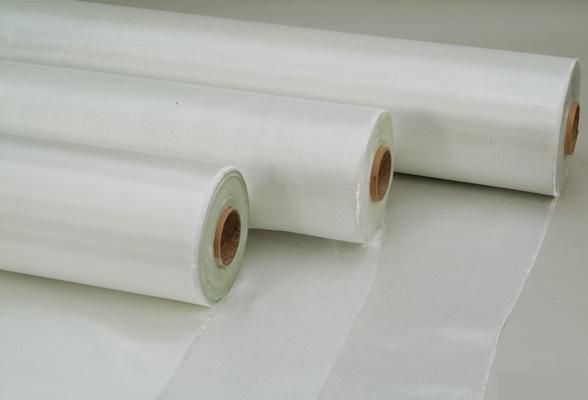Fiberglass cloths or fabrics are made of fiberglass yarn by weaving in different processes. They are an ideal material for fireproofing, heat insulation and industrial insulation and base fabric of composite materials for the following properties.

1. CHEMICAL RESISTANCE
Like glass itself, fiberglass cloths will not rot, mildew or deteriorate. They highly resist most chemicals.
2. DIMENSIONAL STABILITY
Fiberglass cloths will not stretch or shrink. Nominal elongation break is 3-4%. The maximum elongation for “E” glass at break is 4.8% with a 100% elastic recovery when stressed close to its point of rupture.
3. HIGH TENSILE STRENGTH
Fiberglass yarn has a high strength-to-weight ratio. Fiberglass yarn is twice as strong as steel wire with the same diameter.
4. GOOD THERMAL PROPERTIES
Fiberglass cloths have a low coefficient of thermal expansion and relatively high thermal conductivity. Glass cloths will distribute heat more rapidly than organic fibers.
5. HIGH THERMAL ENDURANCE
Fiberglass cannot burn and is basically unaffected by curing temperatures used in industrial processing. Fiberglass will retain approximately 50 percent of its strength at 700°F (371°C) and as much as 25 percent at 900°F (482°C); with a softening point of 1555°F (846°C) and a melting point of 2075° F (1121 °C).
6. LOW MOISTURE ABSORPTION
Fiberglass yarn has extremely low moisture absorption, and don’t change physically or chemically when exposed to water.
7. ELECTRICAL INSULATION
High dielectrical strength and relatively low dielectrical constants make fiberglass cloths outstanding for electrical insulation purposes.
8. PRODUCT VERSATILITY
The wide range of filaments, fiberglass yarns, yarn sizes, weave types and finishes make fiberglass cloths available for a broad range of industrial end uses.
9. COST-EFFECTIVENESS
Fiberglass cloths offer cost advantages compared to other synthetic and natural fiber cloths.

